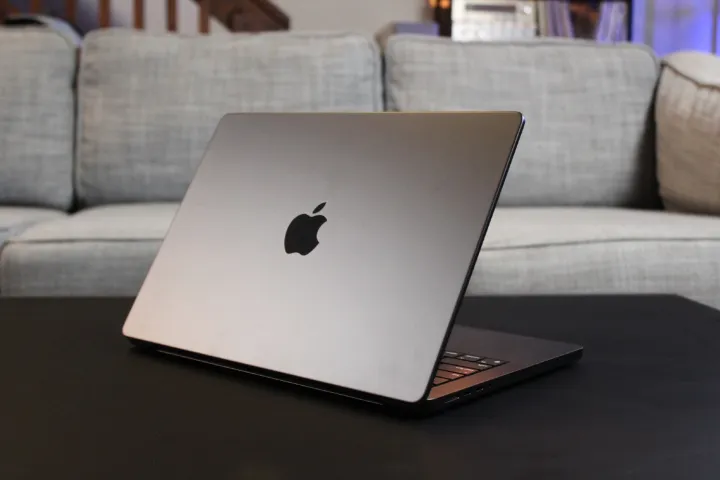
I was as surprised as anyone when Apple killed off the 13-inch MacBook Pro in October 2023, but at the time, it was definitely a pleasant revelation rather than a nasty shock. Now, though? There’s something I wish Apple had done differently.
Looking at Apple’s MacBook Pro lineup today, it’s almost perfect. How can Apple achieve that just-out-of-reach perfection? Maybe it should think about dropping the M3 MacBook Pro. I know, I know, it’s only just been released, but trust me — it needs to go.
In an awkward spot

To be sure, the 14-inch M3 MacBook Pro is a great departure from the old 13-inch model it replaced. Compared to its predecessor, it has a superior XDR display with thinner bezels and larger 14-inch dimensions. There are better speakers, more ports, and an end to the SSD throttling that so bedeviled the 13-inch MacBook Pro. In short, Apple fixed a bunch of problems.
So why am I saying Apple should drop a laptop that is so much better than what came before it? Well, while it may be pretty good right now, things could change rapidly — in just a couple of months, in fact, when the M3 MacBook Air comes out. When that happens, we’ll go right back to having a MacBook Pro that feels sorely out of place.
While killing off the 13-inch MacBook Pro made the lineup feel more “pro,” the M3 MacBook Pro that replaced it has its fair share of drawbacks. For one thing, you can only connect a single external display, while the entry-level model comes with just 8GB of memory. That would be bad enough given its $1,599 starting price, but Apple also charges an arm and a leg to upgrade the RAM. Calling a laptop a “Pro” device that only has 8GB of RAM and can only support one external monitor feels a bit misleading.
What’s more, the M3 MacBook Pro will only feel pro for a little while longer. That’s because an M3 MacBook Air is just months away, and once both the MacBook Pro and the cheaper MacBook Air come with the same chip, a lot of people are simply going to opt for the more affordable model.
Sure, the comparison between the M3 MacBook Pro and the M3 MacBook Air won’t be as stark as it was during the M2 generation when we recommended skipping the 13-inch MacBook Pro entirely and buying the MacBook Air instead. But the M3 MacBook Pro will certainly lose some of its luster regardless.
It shows Apple still hasn’t quite got the MacBook range right. The M3 MacBook Pro sits in an awkward spot between the MacBook Air on the one hand and the M3 Pro MacBook Pro on the other. Instead of trying to shoehorn a laptop into this gap, perhaps Apple should just drop it.
Where do we go from here?

With the latest 16-inch and 14-inch MacBook Pros, Apple has done a pretty good job of bringing back some much-needed differentiation to its MacBook roster. Now, if you want an affordable laptop with lots of great features, you get a MacBook Air. If you need high-end performance and an incredible display, you buy a MacBook Pro.
The pricing differences have helped to emphasize this: the MacBook Air starts at $1,099 for the latest model, while the MacBook Pro begins at $1,599. But I know that killing off the M3 MacBook Pro would make that distinction even clearer because right now, it sits uncomfortably close to the MacBook Air, with its 8GB of memory and entry-level M3 performance.
Removing it from the MacBook range would create clear dividing lines not just in terms of device monikers, but in the chips they use. It would mean the least powerful chip in the MacBook Pro would be the M3 Pro. In other words, pro chips for pro laptops. What’s clearer than that?
It would, of course, mean no $1,599 entry point into the MacBook Pro range – instead, you’d probably be looking at $1,999 for the cheapest MacBook Pro, which is what the M3 Pro models start at. That’s a lot, and I know plenty of people would balk at the cost.
But keeping it around only muddies the MacBook waters. The M3 MacBook Pro has its problems, and its presence will only feel weirder once the M3 MacBook Air launches. Maybe Apple should think about dropping it before things get even more confusing.
Editors’ Recommendations
